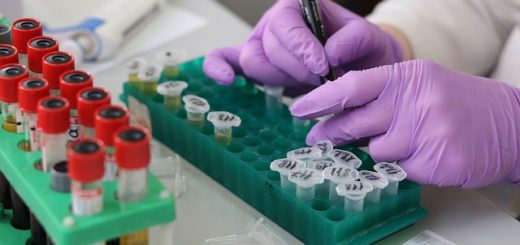Frontier Counties Development Council (FCDC) wants to recruit a Programme Officer
Vacancy: Programme officer Frontier Counties Development Council (FCDC) wants to recruit a Programme Officer for the Livestock Sector Support Project from the 1st of July 2022. The officer will be based in Nairobi but frequently travel to the FCDC counties. The entry grade will be Grade 4.
1. Background:
The FCDC counties of Garissa, Wajir, Mandera, Isiolo, Marsabit, Tana River, Lamu, West Pokot, Samburu, and Turkana account for more than half of Kenya’s landmass (61%). They are home to a population of at least 5.53 million people. The population depends mainly on livestock production as the basis of their livelihoods, with the sector accounting for more than 80% of the region’s economic performance. On average, about 64.2 % of the population lives below the poverty line compared to a national average of 36.1 %. The region has a low population density, at less than 22 persons/km2 in most counties, far below the national average of 82 persons/km2. The average household size across FCDC counties is six persons, much larger than the national average of 2.3 people. The urban population is 23.54%, which is 7% lower than the national average (31.2 %).
The FCDC region is highly climate-sensitive and is experiencing increasing climatic variability due to climate change. Livestock plays a vital role in risk management, particularly for the more impoverished herders, who are more vulnerable to high economic and climatic risks.
The region borders Somalia to the East, Ethiopia and South Sudan to the North, and Uganda to the West. A robust trans-boundary movement of animals and trade in livestock contributes to the spread of livestock diseases. Conflicts also tend to transcend these borders. The shared porous borders are prone to trans-boundary insecurity and conflicts linked to spill-overs from neighboring countries— climate-induced cross-border migrations of pastoralist groups occasion competition for shrinking pasture and water resources. The porous borders also facilitate the proliferation of Small Arms and Light Weapons (SALWs), compounding conflict and insecurity in these borderlands.
2. LSS II Programme overview:
LSS II Programme will run for 4 years, from April 2022 to March 2026. The overall objective of the LSS II Programme is to contribute to the resilience of the pastoralists in the FCDC region to droughts, livestock disease outbreaks, and natural resource conflicts.
The Programme builds on the work accomplished in the first phase, which aimed to strengthen livestock sector institutions to deliver relevant services through better stakeholder coordination; and common disease control, rangelands management, peace and cohesion, and fodder production strategies.
The Programme will support FCDC in enhancing livestock disease surveillance, strengthening disease control, training human resources, improving infrastructure, and contributing to the rapid response to emergencies. It will facilitate inter and intra-county grazing plans and harmonious sharing of pastures. Furthermore, it will promote the registration of community land for the communities to have legal control of their land through the acquisition of title deeds. The Programme aims to increase fodder production to address the natural pasture feed deficit in the FCDC counties; establish strategic fodder reserves in the counties for drought emergency preparedness.
To promote peace and cohesion essential for livestock sector development, the Programme will support peace structures, convene alternative dispute Resolution meetings, and encourage inter-county dialogue on land and natural resource-based conflicts. In addition, for sustained capacity building for peace and cohesion in the region, the Programme will strengthen collaboration with Garissa University 2 Institute for Peace and Security Studies (IPSS) to provide outreach programmes for peace actors and research the conflict hotspots to offer empirical evidence for action.
The Programme will endeavor to create functional and mutually beneficial linkages with region-wide and national pastoralists’ interests through advocacy, political lobbying, and implementation of policies that contribute to the program’s goal.
FCDC will implement LSS II through strategic partnerships with key institutions at the county, regional and national levels. The leading partner at the county level will be County Departments for Agriculture, Livestock, and Fisheries. At the regional level, the main partners will be the Sector Forum for Agriculture and Livestock, the Sector Forum for Peace and Cohesion, and Garissa University Institute for Peace and Security Studies. At the national level, the main partners are the Pastoralist Parliamentary Group, Ministry of Agriculture, Livestock, Fisheries and Cooperatives, State Department for the Development of ASALs, and the Development Partners relevant to the goal of the program.
Programme implementation within FCDC will be coordinated by a Programme Coordinating Unit (PCU) under the guidance of the Programme Steering Committee and Sector Forum for Agriculture and Livestock. The PCU shall be composed of a Programme Manager (PM), Finance and Administration Manager, Programme Officer, Program Assistant, Procurement Officer, and admin assistant. The PCU will oversee the day-to-day management of the Programme.
3. Job description:
(i) Responsible for the delivery of Natural resources and rangelands management, institutional capacity support and policy dialogue, and programme focuses on topical areas.
(ii) Organize key stakeholder coordination meetings at the county and national levels, including County Agriculture Sector Steering Committee (CASCOM) and Sector Forum for Agriculture and Livestock (SFAL).
(iii) In line with the FCDC counties fodder strategy, leadership training and capacity enhancement to promote fodder production and storage, engage women fodder producers and pilot the establishment of fodder banks.
(iv) Closely work with FCDC Sector Forum for Peace and Cohesion (SFPC) and other programme’s conflict resolution key stakeholders to support the reduction of resource-based conflicts in FCDC counties in line with the programme strategy.
(v) Support the establishment of the County and Regional Pastoralist Association to spearhead collaborative arrangements for shared management and use of rangelands in consultation with the Pastoralist Parliamentary Group (PPG) Coordinator.
(vi) Ensure that FCDCs policies of Leaving No One Behind (LNOB) and Gender Equality are fully embedded during implementation and applied in the day-to-day implementation of the programme and ensure that these are effectively captured in the programme reports;
(vii) Participate in the preparation of annual work plans;
(viii) Prepare yearly Work Plans and reports – quarterly, semi-annual and annual reports and other periodic updates as requested by the line manager.
(ix) Represent FCDC and LSS programme in different fora when asked by the management. This includes making presentations of the programme’s progress.
(x) Participate in programme routine field visits and contribute to the documentation of results (photos, info-graphs and testimonials), and lessons learnt reflections and best practices through case studies, etc.
(xi) Any other duties assigned by the supervisor.
4. Qualifications, experience essential, skills, and knowledge:
(a) Bachelor’s degree in Range Management, Animal Production, or any other related field from a recognized university. An advanced degree in a relevant field of study is an added advantage.
(b) At least 5 years of experience implementing range management programmes in the Horn of Africa region.
(c) Excellent communication skills with proven experience in Project Cycle Management (PCM).
(d) Honest and efficient in the use of resources, including own time
How to apply
Applicants must send their Curriculum Vitae and cover letter to info@fcdc.or.ke with the job description “PROGRAMME OFFICER – STRENGTHENING THE LIVESTOCK SECTOR IN ARID AND SEMI-ARID LANDS (ASAL) COUNTIES OF KENYA: PHASE II” in the subject line by 14th June 2022.








